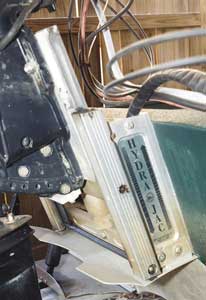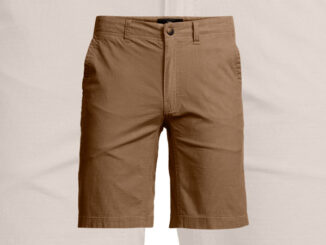
Jack plates can be very beneficial to certain types of boats, but they are not necessarily the answer to all that may ail your boat. In fact, in some cases a jack plate may actually be completely wrong for your boat. I received an e-mail recently from a boater who was considering installing a jack plate on his 17-foot center-console boat, which sported a 90-horsepower V-4 engine on the transom. The boat was the largest he could physically fit into his backyard.
He said he would have liked a larger boat, but that was out of the question. The boat lacked interior space and storage, so he was considering the installation of a 10-inch set-back jack plate. He felt that if he could move the engine back away from the transom, he could gain additional space in the splash well area of the boat, where he would put his 72-quart ice chest. This would create room behind the console so he could install a leaning post with additional storage space under the seat.
The e-mail further explained that the boat was having a problem accelerating due to having too much weight (fuel, ice chest, passengers, etc.) located too far aft. This boat owner also considered the addition of trim tabs to the boat, but unfortunately, with the design of the transom, there was no place to mount trim tabs.
This e-mail got my curiosity aroused, so I asked that he bring his boat to my shop so I could see exactly what he was trying to accomplish and maybe suggest a possible solution.
When I saw the boat, I understood exactly why he was having such trouble. The boat did have a model designation as a 17-foot boat, but it was not what I would describe as a full-size 17. The front deck had room for one fisherman and the rear for another, but if he took a third person on board, they were going to be very crowded.
Unfortunately I did not see any solution to his problem except a larger boat, which he had already told me was not possible. His idea to use a jack plate to move the engine farther back and relocate the ice chest into the splash well was not going to work.
I was not what you would call an A-plus student when I took Physics 101 in school, but I do remember the simple lessons of the fulcrum and lever. If you are trying to lift a heavy object, one of the most efficient methods is the use of a lever. The longer the lever, the more power you can exert on that object to make it move.
In this case, the 10-inch jack plate would be that lever. He would be moving the weight of that engine 10 inches further back. This would increase the downward force on the transom of the boat, causing the boat to squat deeper in the water. In his e-mail, he explained that the boat was already stern heavy and sluggish getting on plane. This lever effect would make that problem even worse.
I inspected the transom of the boat and agreed that there was no way to mount trim tabs to this hull. I suggested that he consider one of the many so-called whale tale fins that bolt onto the engine. I am not a big fan of these fins, but in this particular case, I felt it would be beneficial to his boat.
Most of these fins are plastic, and they bolt on top of the engine-cavitation plate. If you hit a submerged object, these fins could cause the cavitation plate to break.
I recommended that he check out a plate called “The Edge,” which is made of stainless steel. Instead of bolting on top of the cavitation plate, it attaches to the underside and helps to reinforce the cavitation plate. The addition of such a plate will help the boat to accelerate faster, carry a heavier load, and allow the boat to stay on plane at a slower speed in the event of rough seas.
There are many products on the market that promise all kinds of miracle results. Before making any modifications to your rig, make sure you thoroughly research whatever it is that you are considering. Talk to your boat dealer or mechanic, and get their opinion.
If possible a phone call to the boat manufacturer might also be very helpful.
Keep in mind that just because a certain product works on someone else’s boat does not necessarily mean it will work on your boat.
If you have any questions about your boat, motor or trailer, drop me an e-mail at hanktheboatdr@yahoo.com. Have a happy and safe boating new year.


